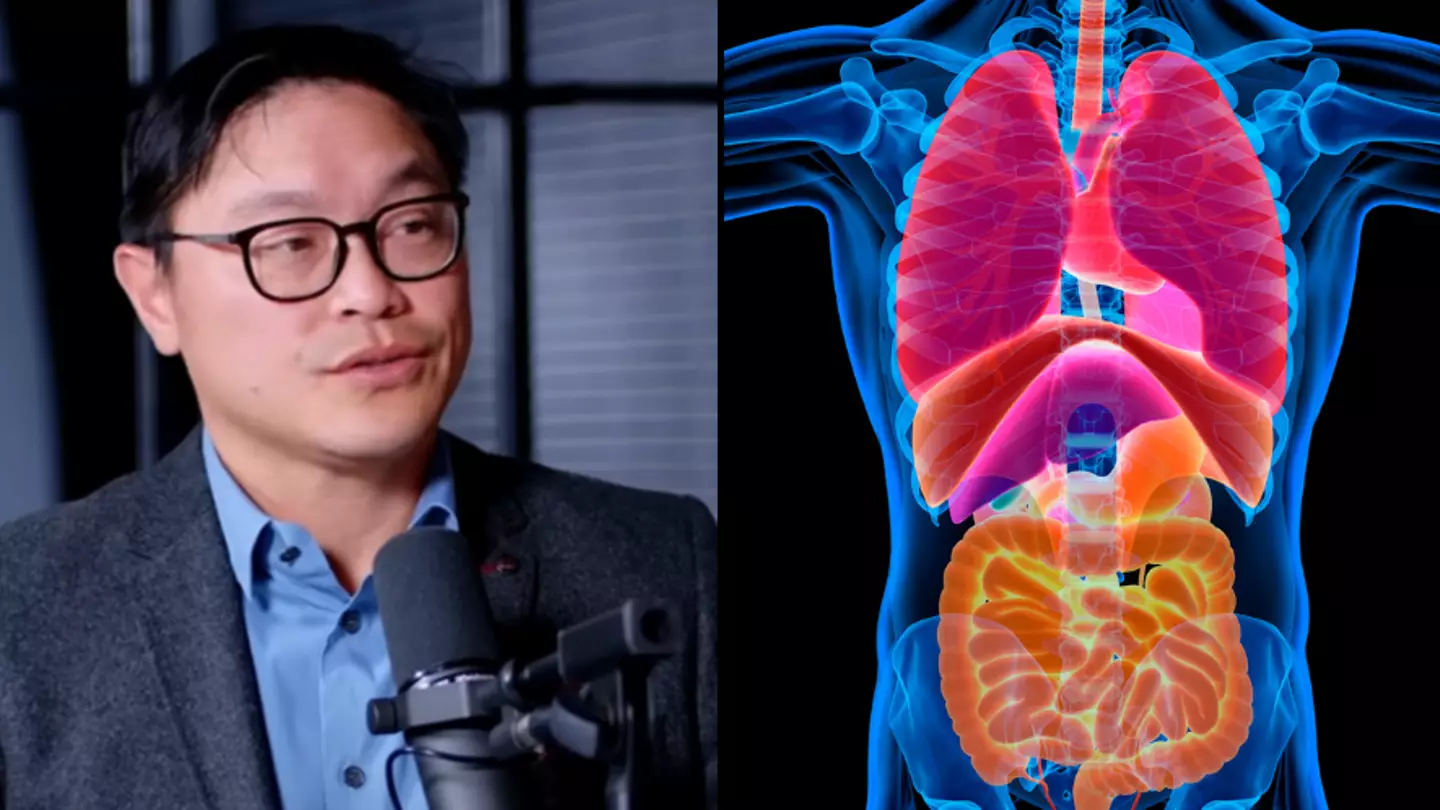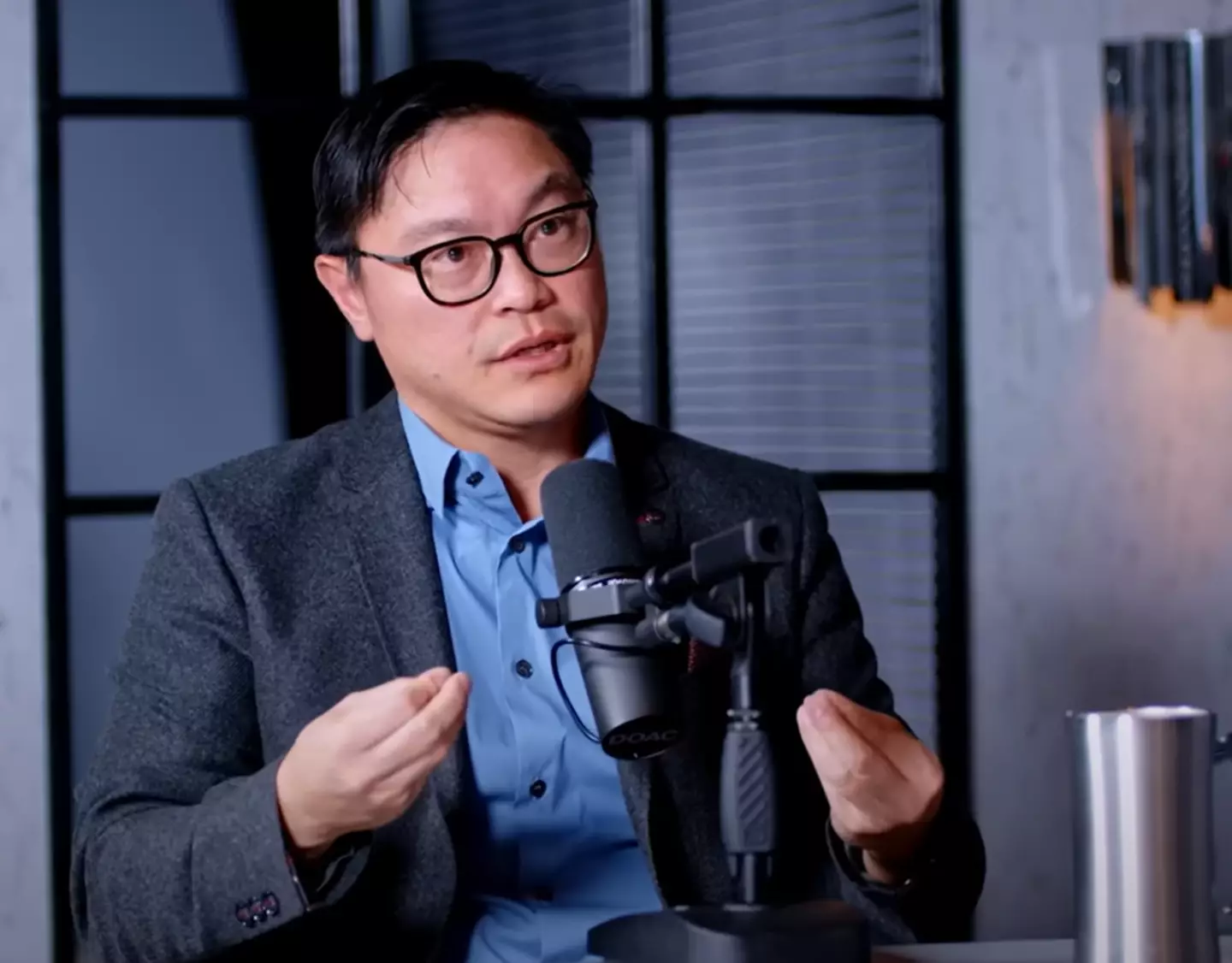A health expert has explained what happens to your body if you stop eating, and how it's not what a lot of people assume would happen.
Dr Jason Fung is a proponent of fasting, where you don't eat for periods of time as a way to lose weight.
You might think that not eating like this wouldn't be great for your body but there's some evidence pointing towards certain health benefits and many health experts will say there's something to be said for it.
Dr Fung is one of those, and when he was a guest on the Diary of a CEO podcast he spoke about what happens to your body when you don't eat and how it goes against most people's assumptions.
Fasting does all sorts of things to your body, but what Dr Fung was mainly concerned with was the impact it had on your calorie consumption.
Dr Jason Fung has recommended intermittent fasting and a low-carb diet. (YouTube/DiaryOfACEO) "When you don't eat, what happens in your body from a hormone standpoint is that your insulin's gonna fall, you're gonna allow your body to start using the calories that are in the body," he claimed.
"At the same time other hormones go up so the sympathetic tone goes up, which is your fight or flight response, your cortisol levels go up because again it's an activation and your growth hormone goes up.
"Those hormones are gonna start telling your body to start pulling calories out, so you're actually activating yourself."
He then went on to say that hungry wild animals were more energetic and dangerous than full ones.
He said: "When you just eat, you just wanna lie there. You know you wanna digest your food, you have no energy.
"So people say 'your metabolic rate's gonna go down if you fast', no. The truth is actually the opposite. It goes up."
He's also not a proponent of the idea that you really need to eat breakfast in the morning.
This is a point of disagreement between Dr Fung and some other health experts, though.
The NHS advice for healthy eating is not to skip breakfast if you're trying to lose weight.
He said that fasting would actually make your body burn more calories. (Getty Stock Photo) Meanwhile, nutrition therapist Justin Nault said not eating breakfast could mean 'metabolic adaptation in the wrong direction', and Dr Christopher Gardner warned that a study from the American Heart Association found that people who ate their daily meals in just an eight hour window were at a 91 percent higher risk of developing cardiovascular disease.
If you are going to follow Dr Fung's recommendations and give fasting a go then you ought to have a meeting with your own doctor first to discuss what it might do to you, don't just be changing your lifestyle because someone on the internet said so.

 Joe Harker
Joe Harker
.jpg)